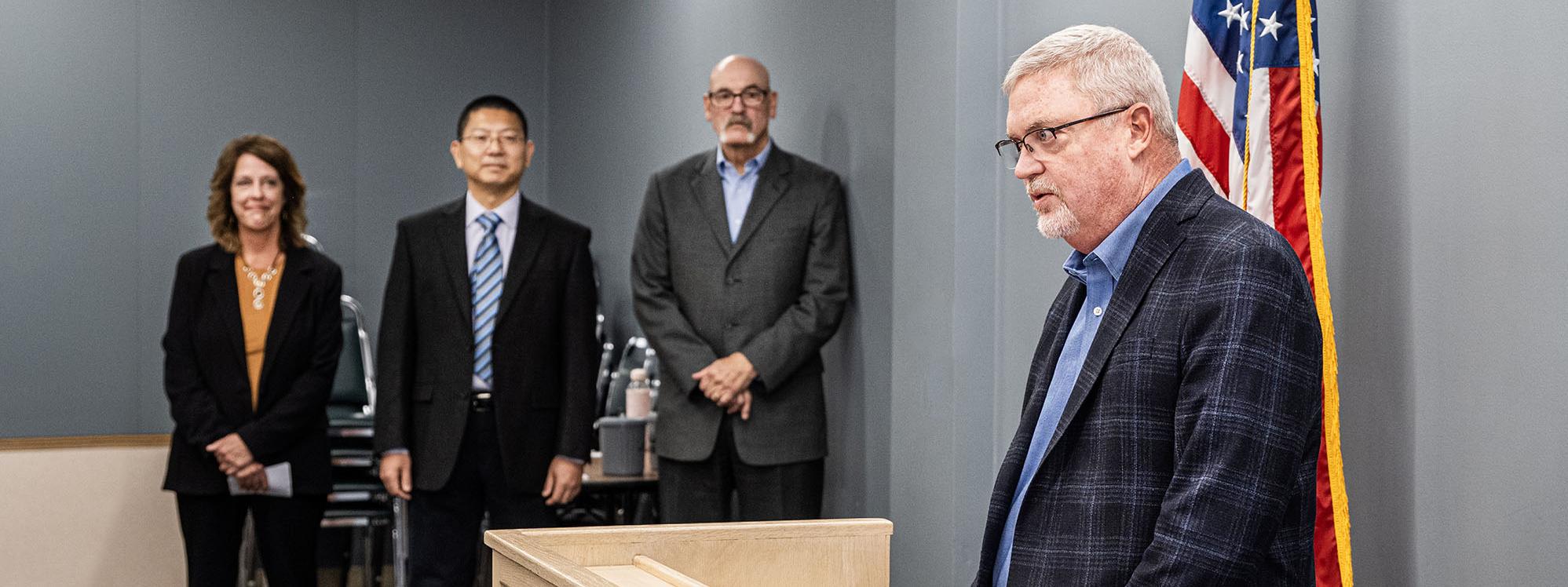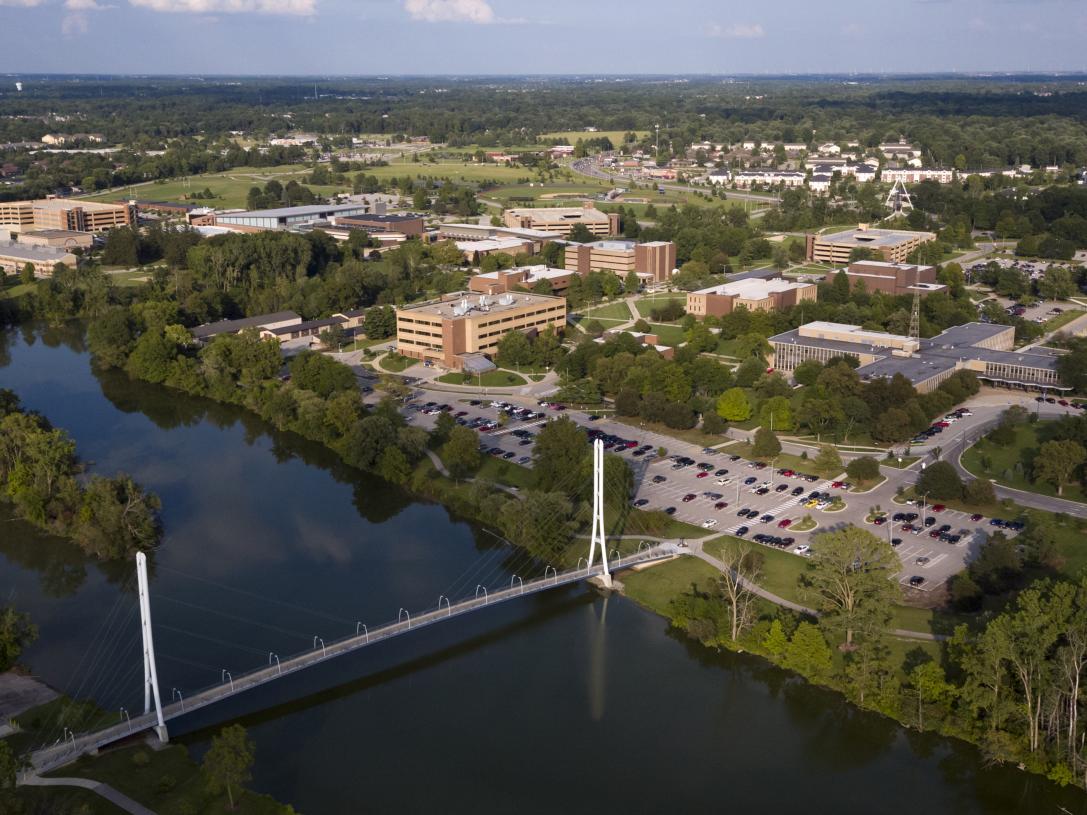
Chen, PFW help Allen County land $1.7M grant for battery recycling
By Blake Sebring
November 26, 2024
Purdue University Fort Wayne has entered into a collaboration that could potentially make it a local and state leader in lithium battery recycling. Under the leadership of Bin Chen, associate professor of electrical and computer engineering, the university helped Allen County receive a $1.7M grant from the Department of Energy for a three-year study that was announced Monday afternoon during a news conference at the Rousseau Centre in downtown Fort Wayne.
“It’s really exciting for us as an institution to be able to utilize the intellectual capital of our faculty and students in a way that truly benefits the region,” said Carl Drummond, provost and vice chancellor for academic affairs at Purdue Fort Wayne.
Drummond said the project could provide technical training and research opportunities for as many as 50 PFW students over the three years.
“A collaboration such as this is how Purdue Fort Wayne brings world-class research to the needs of our community,” Drummond said.
Chen, who initiated the grant proposal, is now spearheading three major projects aided by funding from the Department of Energy. The first two, which were announced in August, are joint efforts with UHV Technologies and feature the use of artificial intelligence in plastic and batter recycling.
“The good thing about this project is that we can hire our students for the task, and I think it will benefit them a lot,” Chen said. “We will have a good team of our students to support things such as going out and doing public education on how to properly dispose of batteries.”
The campaign is called “Stop the Spark,” and includes bringing greater public awareness of potential lithium battery hazards and more training for first responders and workers at hazardous waste facilities.
There are only seven lithium battery recycling grants awarded nationwide by the DoE this year, said Stacie Hubbert, director of the Allen County Department of Environmental Management. Hubbert said the federal money should arrive by the end of February.
One of the project goals is to reduce fires caused by improperly disposed of lithium batteries by 50%. Hubbert said there have been 14 such fires in the county since the early part of the year.
According to Allen County Commissioner Richard E. Beck, who spoke at Monday’s news conference, lithium batteries have revolutionized technology with their small size, high energy density, and long lifecycle, but they are also a fire hazard and have a significant negative environmental impact. They are also sensitive to temperature swings, especially extreme changes like those in northeast Indiana.
Beck said the federal government works to build and maintain the lithium battery supply, but local governments bear the burden of fighting fires they cause, and their safe disposal.
Hubbert said lithium batteries should not be thrown into the trash or placed in curbside recycling bins. The county currently offers eight locations where residents can recycle their batteries free of charge.




